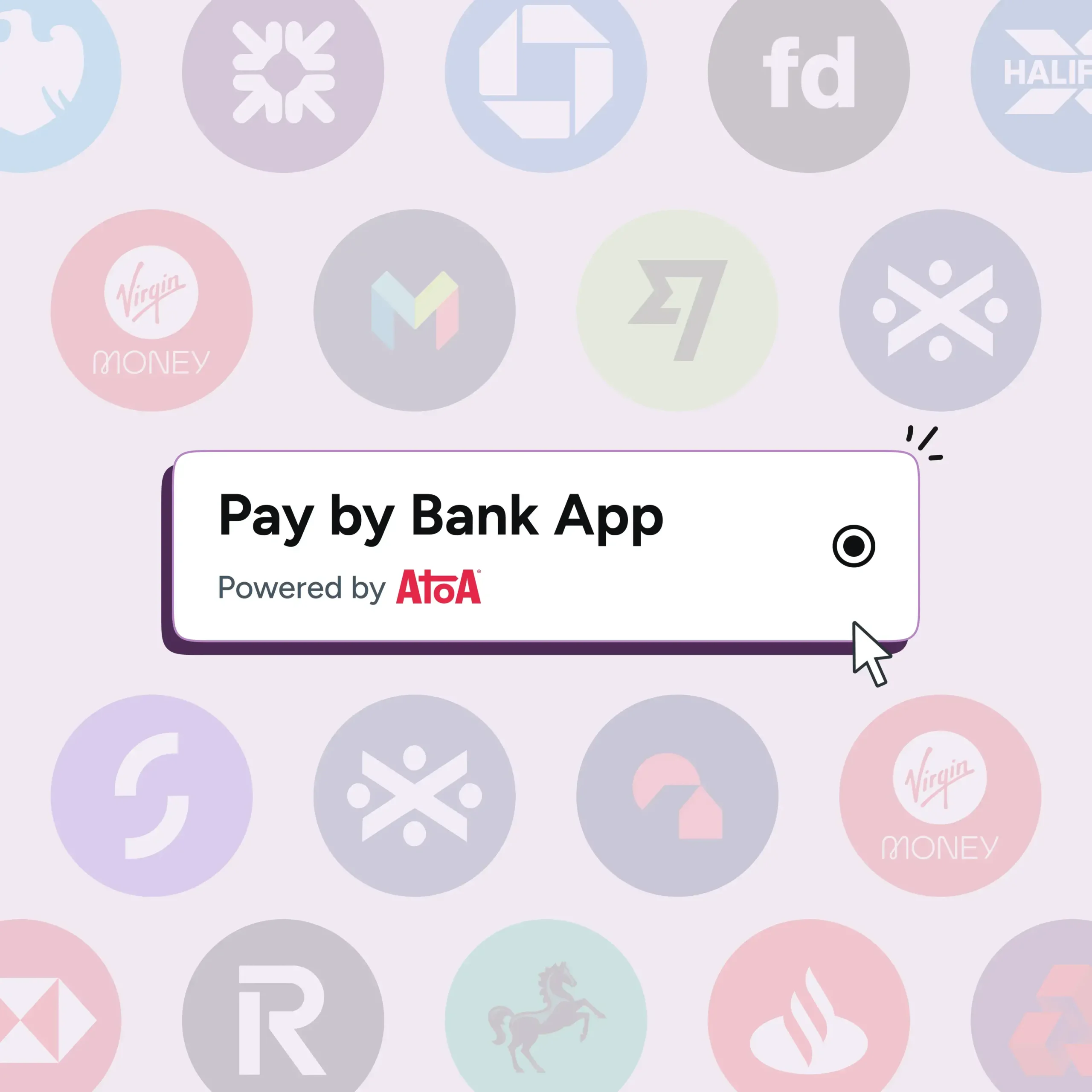Ready to get started?
Easily integrate next-generation payments and financial data into any app. Build powerful products your customers love.
Open banking payments also known as Pay by Bank or account-to-account (A2A) payments are transforming how UK businesses get paid. They’re fast, secure, and built on modern open-banking rails rather than traditional card networks. And this isn’t a niche trend, it’s a global shift. Analysts project the open banking market to expand at a compound annual growth rate of more than 27% by 2030, underscoring how quickly businesses and consumers are embracing direct, data-driven payments. But one question still comes up: are open banking payments actually free?
The short answer is: they’re free for customers, but not entirely free for businesses. Let’s break that down.
What are open banking payments?
Open banking payments allow customers to pay businesses directly from their bank account using secure APIs. Instead of entering card details, they simply approve the payment in their banking app, usually with fingerprint or face ID. The money moves straight from one account to another, powered by the UK’s Faster Payments network. It’s instant, secure, and eliminates middlemen like card schemes and acquirers.
Are open banking payments free for customers?
Yes, for consumers, open banking payments are completely free. The UK’s open banking framework, regulated by the Financial Conduct Authority (FCA), guarantees that customers can initiate payments and share banking data at no cost. There are no service charges or transaction fees when using Pay by Bank at checkout. For customers, this means a seamless experience: scan, approve, done. No extra cost attached.
Are open banking payments free for businesses?
Not exactly. While open banking solutions remove many traditional costs, such as interchange and card scheme fees, businesses typically pay a small flat fee per transaction to their payment provider. That’s because providers handle the heavy lifting — API connections, compliance, fraud monitoring, and settlement. Even so, open banking payments remain far cheaper than cards, where fees can climb above 2.9% per transaction.
Here’s how it compares:
- Card payments: 1.4%–2.9% + 20–30p per transaction
- Open banking soltions: Usually a few pence per transaction, depending on the provider
So while not technically “free,” they’re as close as it gets to a zero-cost payment method, especially for high-volume merchants.
Why businesses are switching to open banking solutions
Even with a small fee, open banking payments offer huge advantages for UK businesses:
- Lower costs: No card networks, chargebacks, or hidden interchange fees
- Instant settlement: Money lands in your account within seconds
- Higher security: Payments authorised inside the customer’s banking app
- Simplified reconciliation: Transactions automatically match invoices
- Better cash flow: Faster access to funds, fewer delays
For businesses using Atoa, these benefits come built in with instant payments, transparent pricing, partial payments, Payment Pages, and full integration with tools like Xero and QuickBooks.
Takeaway
For customers — yes.
For businesses — almost, compared to what you’re paying in card fees.The bigger picture is this: open banking payments are changing the economics of getting paid. They’re secure, instant, and drastically more affordable. The real value lies not in being “free,” but in being fair — transparent, predictable, and built for modern business.



